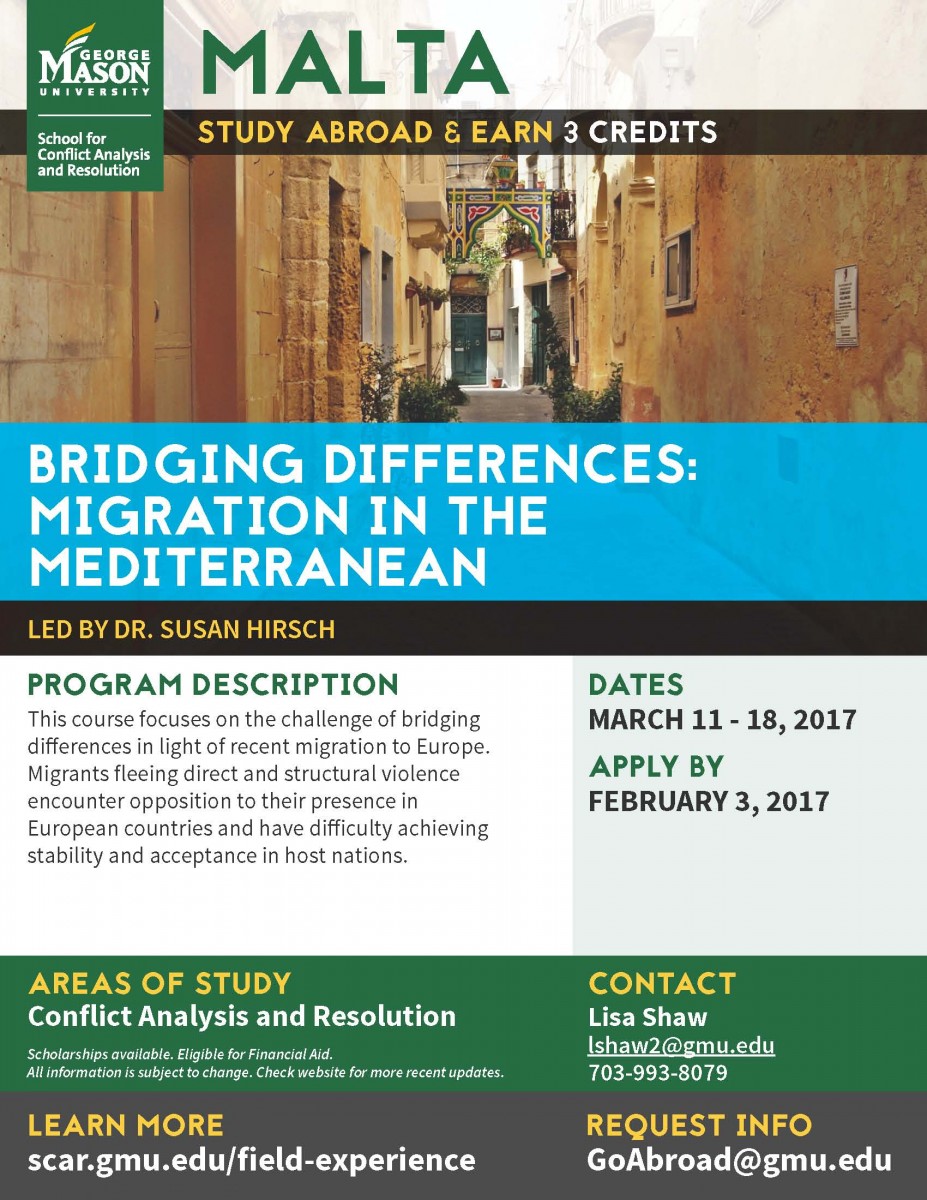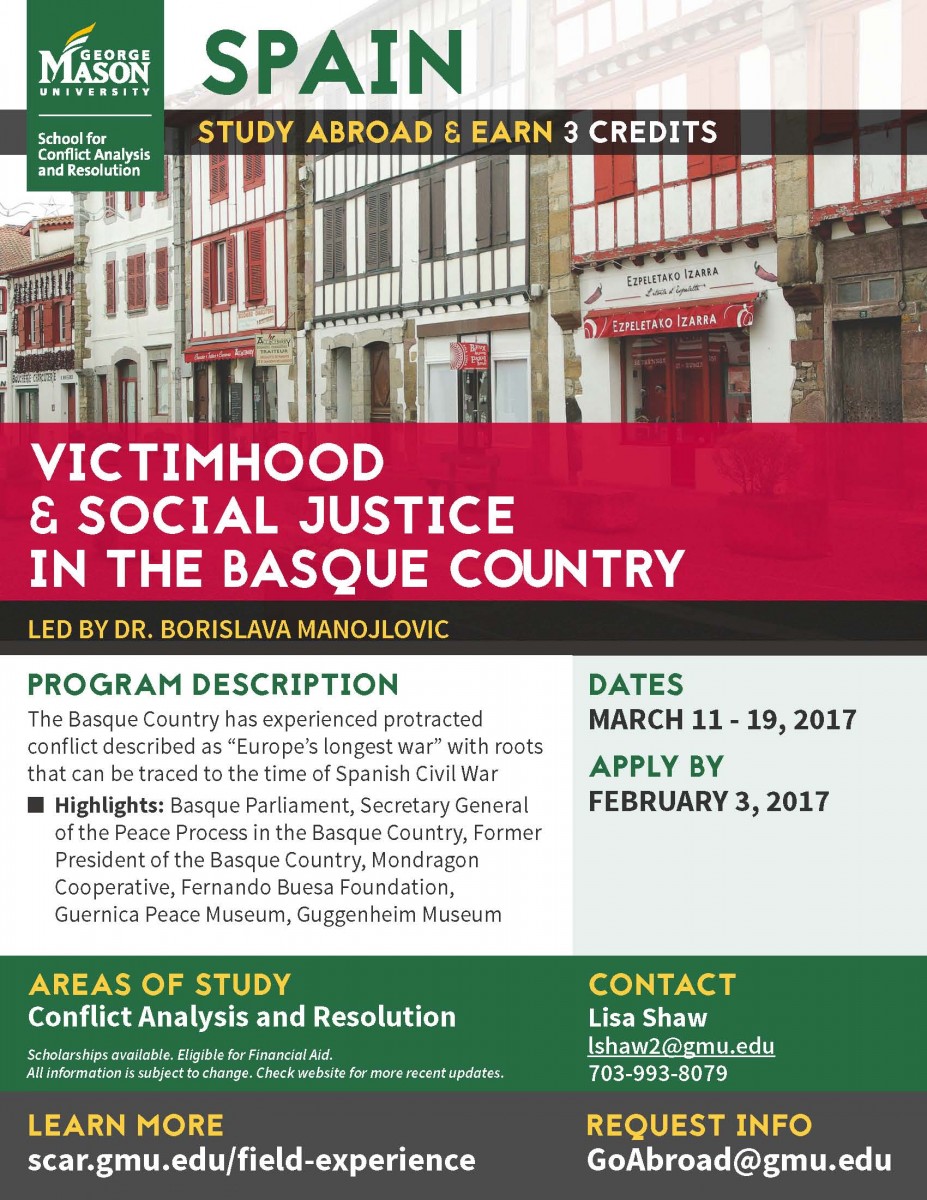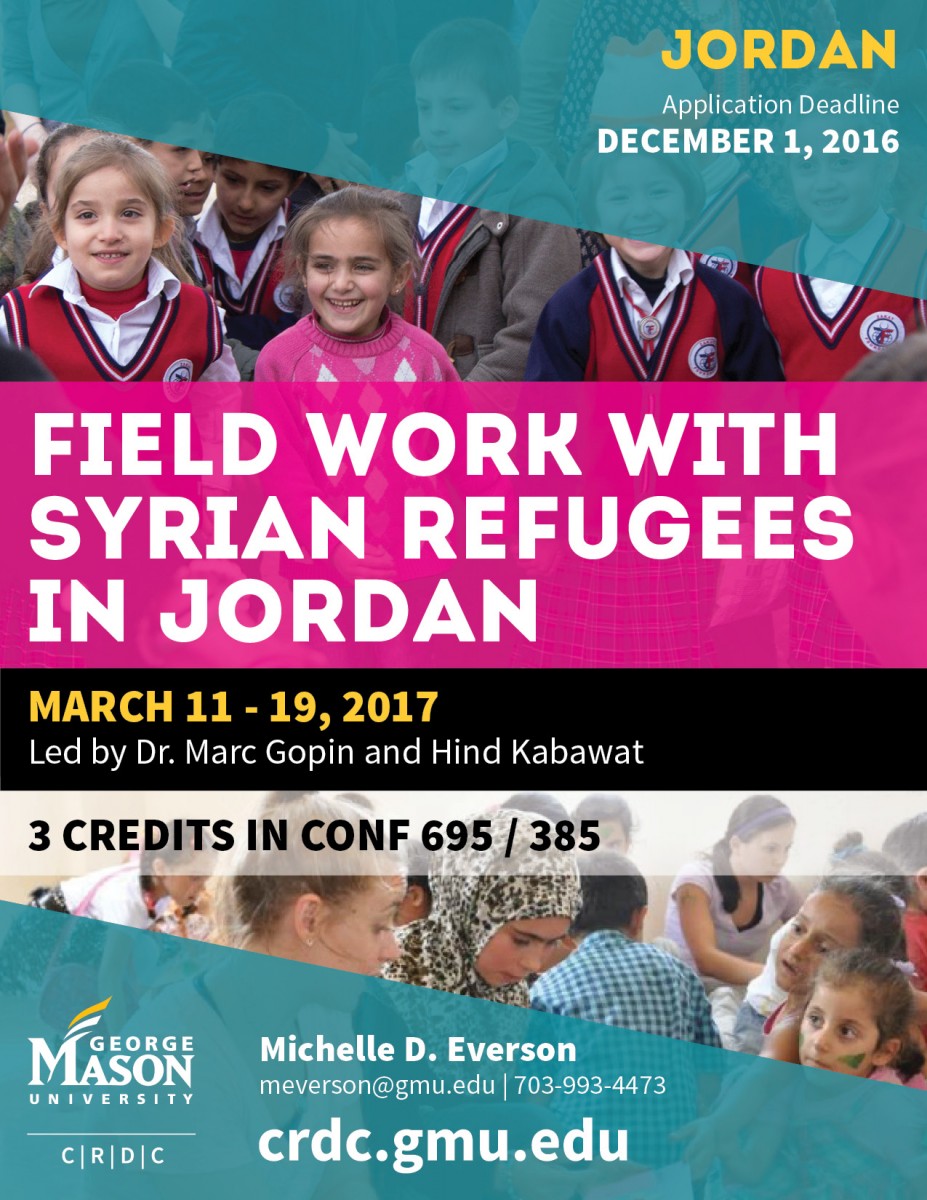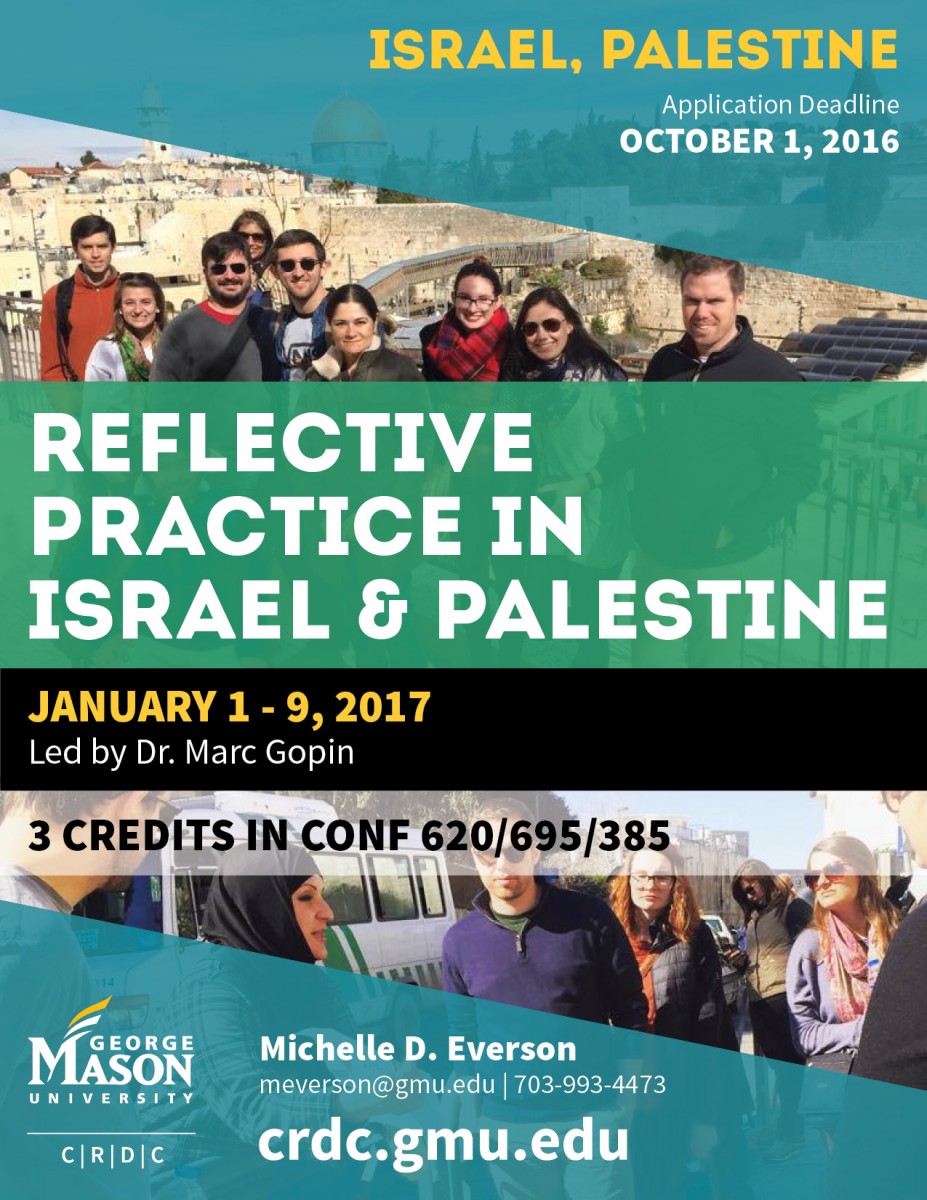The School for Conflict Analysis & Resolution organizes field experience trips on a regular basis to many domestic and international locations. More than a traditional "study abroad", our field experience trips explore and focus on conflict resolution practice, reflection, and service learning. Our trips give students opportunities to apply theories and concepts learned in the classroom while working in communities across the globe or close to home.
Please feel free to explore the upcoming and previous trips by clicking on one of the trips below. These links provide information regarding destinations, dates, costs, application and payment procedures, mandatory pre-trip meetings, and other important details.
CONF 625 Bridging Differences: Migration and Integration in the Mediterranean (Malta)
Dr. Susan Hirsch
Study Abroad Course, March 11 thru 18 with Pre and Post Trip Meetings
Application Link: http://scar.gmu.edu/field-experience/malta-spring-2017
This course focuses on the challenge of bridging differences (cultural, racial, economic, religious, gender, refugee status, etc.) in light of recent migration to Europe via the Mediterranean Sea and other routes. Migrants fleeing direct and structural violence encounter opposition to their presence in European countries and have difficulty achieving stability and acceptance in host nations. Differences are frequently the site of misunderstanding, tension, and conflict between migrants and host country residents and within and across these and other social groups.
Research on these integration initiatives is limited and we know very little about how conflict resolution approaches are being used to bridge differences and their potential for future integration initiatives. The learning objectives of the course are aimed at engaging students in answering the questions above through library research, analysis of data from a research project focused on integration, and field based research (focus groups, interviews, and participant observation) on several integration initiatives in Malta, an island nation in the Mediterranean.
CONF 625 – 002 Bridging the Post-Election Divide
Susan Allen
CRN# 17649
This Engaging Conflict section will focus on building understanding amongst people who were on different sides of the deep divisions surrounding the November 2016 election. Participants will work in groups to identify and implement one of a variety of dialogue related approaches to bridging these divides. Each group will design and implement a process, learning the necessary skills for this conflict resolution practice by doing this work in a mentored environment. Students will learn through discussion with classmates of the several different projects being implemented by classmates, and by comparing and contrasting the experiences, the ethical dilemmas, and other challenges faced by each project. Each group will work to design and implement a method for evaluating their work and its outcomes.
CONF 625 – 003 Emergence of Global Genocide and Atrocity Prevention Movement
Douglas Irvin-Erickson
CRN# 21505
This Engaging Conflict section explores the origins and emergence of the global Genocide and Atrocity Prevention movement and asks how genocide, mass atrocities, and mass violence may be prevented. We will consider different conceptualizations of genocide and mass atrocities, and the role of political, social, religious, and cultural causes of mass violence, deeply rooted conflict, and categorical and identity-based violence. Finally, we will pay close attention to applying theories of CAR to the study of genocide, to understand genocide as a (social, political, and/or cultural) process deeply connected to other conflict processes, and not simply an isolated type of violence. Over the semester, students will gain expertise in the different mechanisms for preventing genocide and mass atrocities, including early warning indicators, diplomacy, international justice, legal infrastructures, the responsibility to protect, negotiation and mediation, and civil society approaches. Student practice in the field of genocide and atrocity prevention (and recover and reconciliation) will take place in governmental organizations, international non-governmental organizations, research institutions around Washington D.C., and with diaspora communities and community organizations
Previous Trips
- Approaches to Conflict Management and Resolution: Field Work with Syrian Refugees in Jordan - Spring 2017
- Brazil - Summer 2016
- Indonesia - Gender and Conflict - Winter 2017
- Indonesia - Research Methods - Summer 2016
- Malta - Bridging Differences: Migration in the Mediterranean Spring 2017
- Northern Ireland - Summer 2016
- Reflective Practice in Israel/Palestine Winter 2017
- Spain: From Victimhood to Social Justice Basque Country Spring 2017
- The Balkans - Summer 2016






